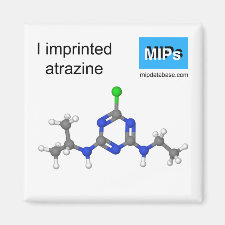
Authors: Zhou TY, Hou J, Yuan D, Li HY, Zhang P, Li Y, Ding H, Chen YH, Ding L
Article Title: Determination of triazine herbicides from honey samples based on hydrophilic molecularly imprinted resins followed by high performance liquid chromatography-tandem mass spectrometry.
Publication date: 2016
Journal: RSC Advances
Volume: 6
Issue: (101)
Page numbers: 98663-98673.
DOI: 10.1039/C6RA20698K
Abstract: A facile, novel and efficient approach to extract six triazine herbicides from honey samples based on hydrophilic molecularly imprinted resins (MIRs) was described. The MIRs were prepared in a one-pot polycondensation with resorcinol and melamine as the double functional monomers, formaldehyde as a crosslinking agent, and ametryn as the template. The obtained MIRs have a uniform spherical morphology and excellent dispersibility in water due to them having a large number of hydrophilic groups. The MIRs were successfully used as a solid-phase extraction material to rapidly extract and clean up to six triazines in honey samples followed by high performance liquid chromatography-tandem mass spectrometry detection. Under optimal conditions, the method showed higher recoveries and a shorter extraction time. The detection limits of the six triazines are in the range of 0.02-0.15 ng g-1. The recoveries of the six triazines are in the range of 83 ± 4% to 97 ± 4% at the spiked level of 5 ng g-1. The proposed method is simple and quick and has the potential to detect triazine herbicides in other aqueous samples
Template and target information: ametryn, triazine herbicides, simazine, desmetryn, atrazine, propazine, prometryn



Join the Society for Molecular Imprinting

New items RSS feed
Sign-up for e-mail updates:
Choose between receiving an occasional newsletter or more frequent e-mail alerts.
Click here to go to the sign-up page.
Is your name elemental or peptidic? Enter your name and find out by clicking either of the buttons below!
Other products you may like:
 MIPdatabase
MIPdatabase









